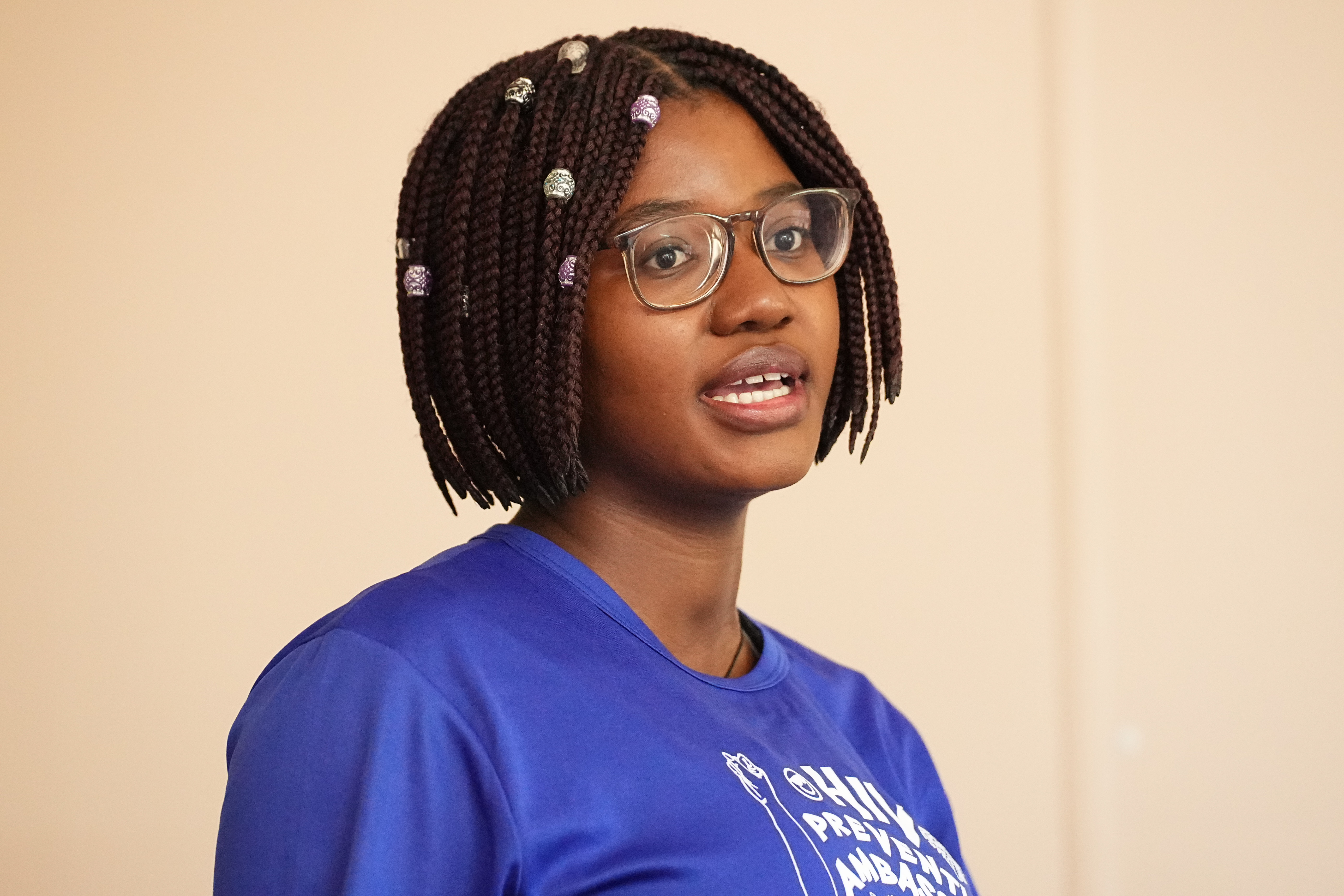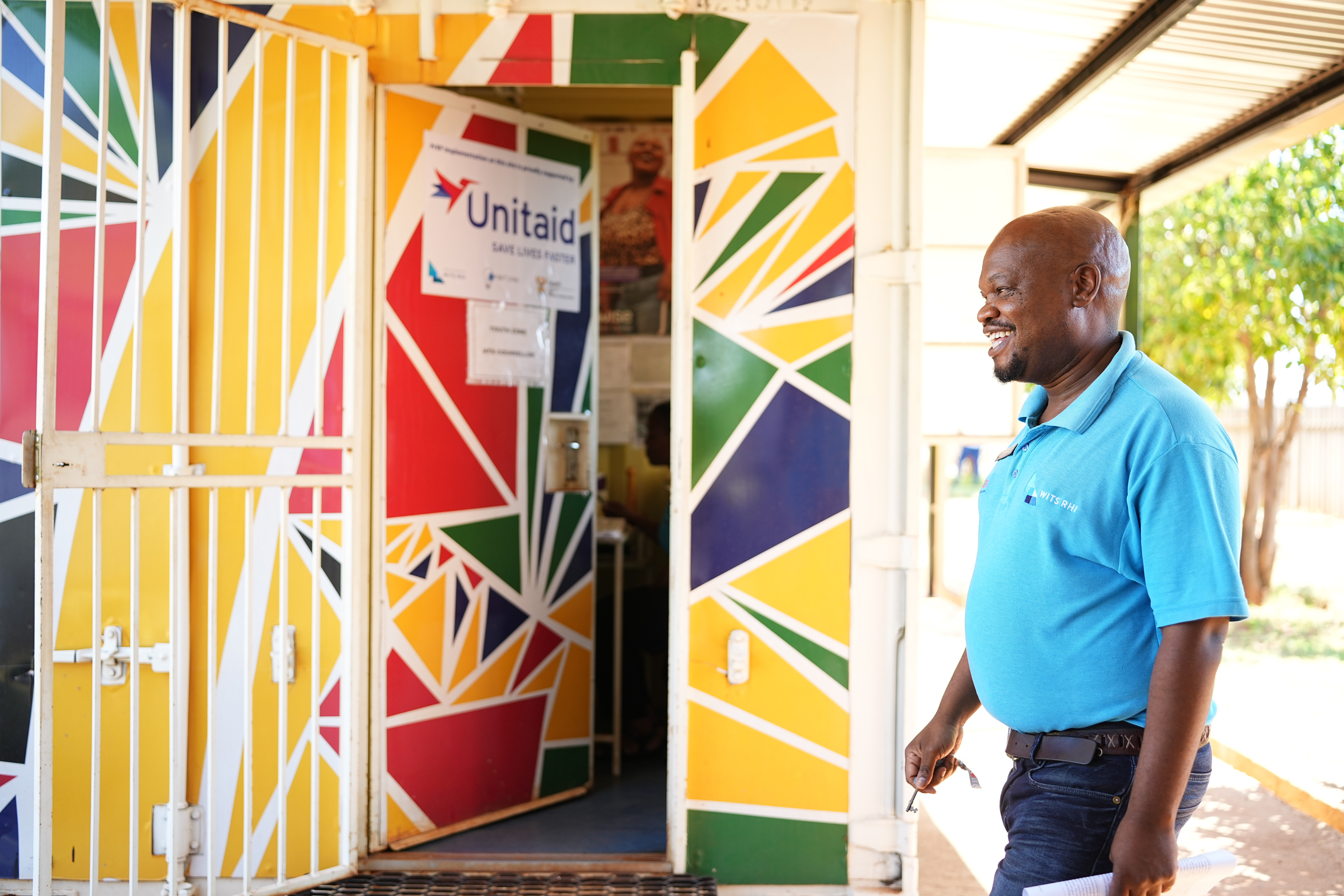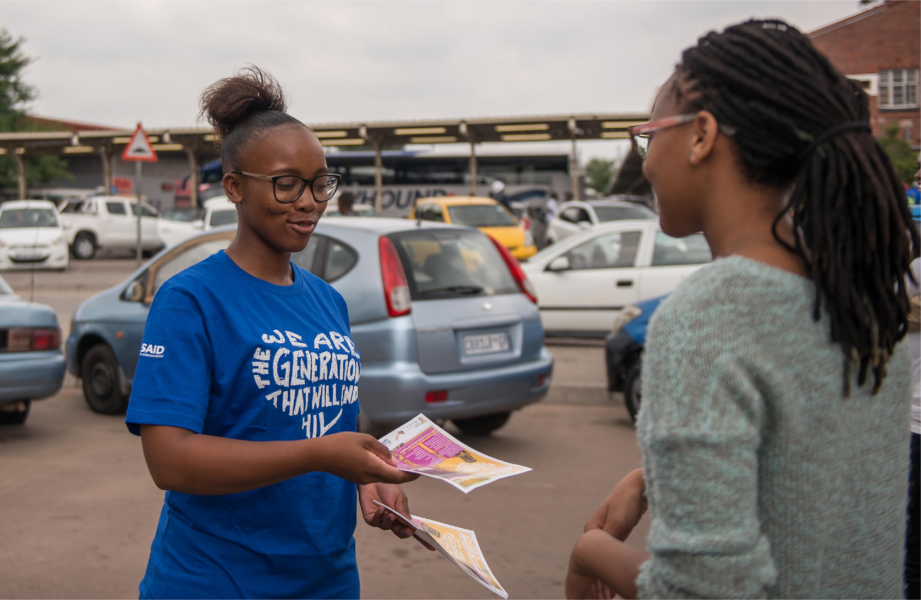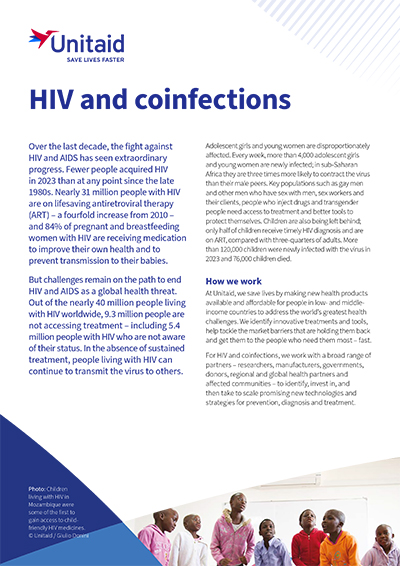In 2024, a revolutionary new prevention drug called lenacapavir emerged that could change the course of the HIV epidemic—if people at greatest risk of infection can have access to it. In South Africa, where more than 800 adolescent girls and young women are infected with HIV every week, 20-year-old Thato Mtshweni wants to know what the world is waiting for.
“We need to protect ourselves,” says Mtshweni, the beads in her braided hair tinkling in time with her words. “I see a lot of young people being unsure of their health, and we need options.”
Together with two of her friends, Mtshweni works as a community information agent at the Maria Rantho Clinic, part of a youth-focused outreach program just outside Johannesburg. The clinic serves as a one-stop shop for young people to protect themselves from HIV integrated into broader care—offering testing, prevention, and treatment without judgement or stigma.
While the program includes core prevention tools like male and female condoms, and safe sex counselling, Mtshweni says the most innovative part is PrEP—pre-exposure prophylaxis drugs that prevent HIV infection. PrEP has taken many forms over the years: a vaginal ring, daily pills, and injectable cabotegravir given every two months. Each option has its pros and cons.
“I started taking PrEP in 2019,” says Mtshweni. “I started with oral PrEP, but in 2022 I had side effects, so I switched to long acting cabotegravir. It’s way better. My friends take it too. Many young people prefer cabotegravir, because they don’t want to take a pill every day.”

That preference matters. While oral PrEP remains an important tool for many, long-acting PrEP may be more convenient for others. It’s also more effective for women: daily oral PrEP works well when people adhere to the regular dosing schedule but if they can’t, efficacy rates among women fall more quickly than they do for men. In sub-Saharan Africa, the HIV burden disproportionately impacts women: there, young women aged 15–24 are three times more likely to become infected with HIV than young men.
“Young women bear the brunt of the HIV epidemic, especially in South Africa,” says Vusile Butler, Senior Manager at Wits RHI, Unitaid’s partner operating the Maria Rantho HIV clinic. “What we’ve learned through this project is that choice matters – and youth engagement is essential. You can’t just offer a product; you have to build trust. Having young people be the face is really important.”
That’s why lenacapavir—a twice-yearly injectable, long-acting PrEP—has sparked a surge of hope. Clinical trials showed lenacapavir to be 100% effective among cisgender women and girls, and nearly as effective among cisgender men and gender-diverse populations. Moreover, injectables serve a vital role in reducing stigma. For many—especially women and other marginalized groups—an injection may offer greater discretion than pills, which can expose them to discrimination or even intimate partner violence.
Lenacapavir could be the most powerful prevention tool yet: “the closest thing to an HIV vaccine,” as some experts have called it.
This is crucial. Although progress has been made in reducing HIV-related deaths, there are still more than 1.3 million new infections each year. Ending the epidemic means preventing new cases—particularly among young women and other groups where infection rates are highest.
With lenacapavir, that goal may be within reach. But access is one critical hurdle.
Despite all its promise, lenacapavir isn’t yet widely available. Like all new health technologies, it must overcome regulatory, supply chain, pricing, and awareness hurdles before it can achieve widespread rollout. A significant funding crisis in international aid is further challenging the situation, impacting the global HIV response and threatening to reverse hard-won gains— which is projected to result in millions of additional infections and deaths.
Carmen Pérez Casas, Unitaid’s senior strategy lead, cuts to the chase, “To realize lenacapavir’s potential, three critical elements must still be addressed: affordability, use, and funding. Affordability remains a pressing issue. Gilead’s access price for lenacapavir – the price they will set to purchase the product in low- and middle-income countries – remains unknown, making it difficult for countries and stakeholders to make plans to roll it out. Strategic partnerships and market interventions are also needed to accelerate, expand and scale access to generic lenacapavir to bring prices within reach as soon as possible.”
She adds, “After years of progress, we’re closer than ever to ending HIV as a public health threat. But to get there, countries need support to make this medicine available to everyone who needs it – including ensuring efforts are backed by sufficient funding. If we don’t act now, rising infections will lead to millions more needing care, at a much higher cost down the line. We need strong political commitment and joint action to finish the job.”
Unitaid has already committed an initial US$22 million to accelerate access to lenacapavir, applying lessons learned from our experience fast-tracking the introduction of other HIV medicines, reducing costs, and addressing other access barriers. We’re building on our ongoing PrEP programs in South Africa and Brazil to integrate lenacapavir at clinics like Maria Rantho and continuing to support communities, such as young outreach workers like Mtshweni.
In addition, we’re supporting country-led product introduction to accelerate adoption in a broader set of early adopter countries as they roll out some of the first supplies of the drug. And we’re working with partners to bring affordable, quality-assured generic formulations of lenacapavir to market as quickly as possible.

Access to affordable supply is essential, but this must be complemented by cost-effective and impactful delivery approaches. To that end, we have issued a new call for proposals to fund scalable implementation approaches that break major cycles of transmission and achieve epidemic impact. The latest funding opportunity will support sub-Saharan African countries rolling out lenacapavir through their national HIV programs and develop innovative and effective ways of swiftly reaching high-risk populations in high-burden areas — opening the door for people like Mtshweni to access the drug without delay.
Crucially, ensuring equitable access for all who need it, wherever they are, is fundamental to true scalability. Without inclusive and widespread access, even the most promising interventions risk falling short of their full potential.
“In times when access to treatment remains a challenge, we risk missing vital opportunities to prevent HIV,” says Dr. Philippe Duneton, Executive Director of Unitaid. “Now is the time to be bold and ambitious. We must harness the potential of long-acting PrEP like lenacapavir for those who stand to benefit most — and seize this moment to bend the curve of the HIV epidemic.”
Mtshweni and her fellow outreach workers say they’re ready.
“I would like youth to be empowered about their health,” she says. “My family is really proud of me for helping other girls protect themselves from HIV.”

